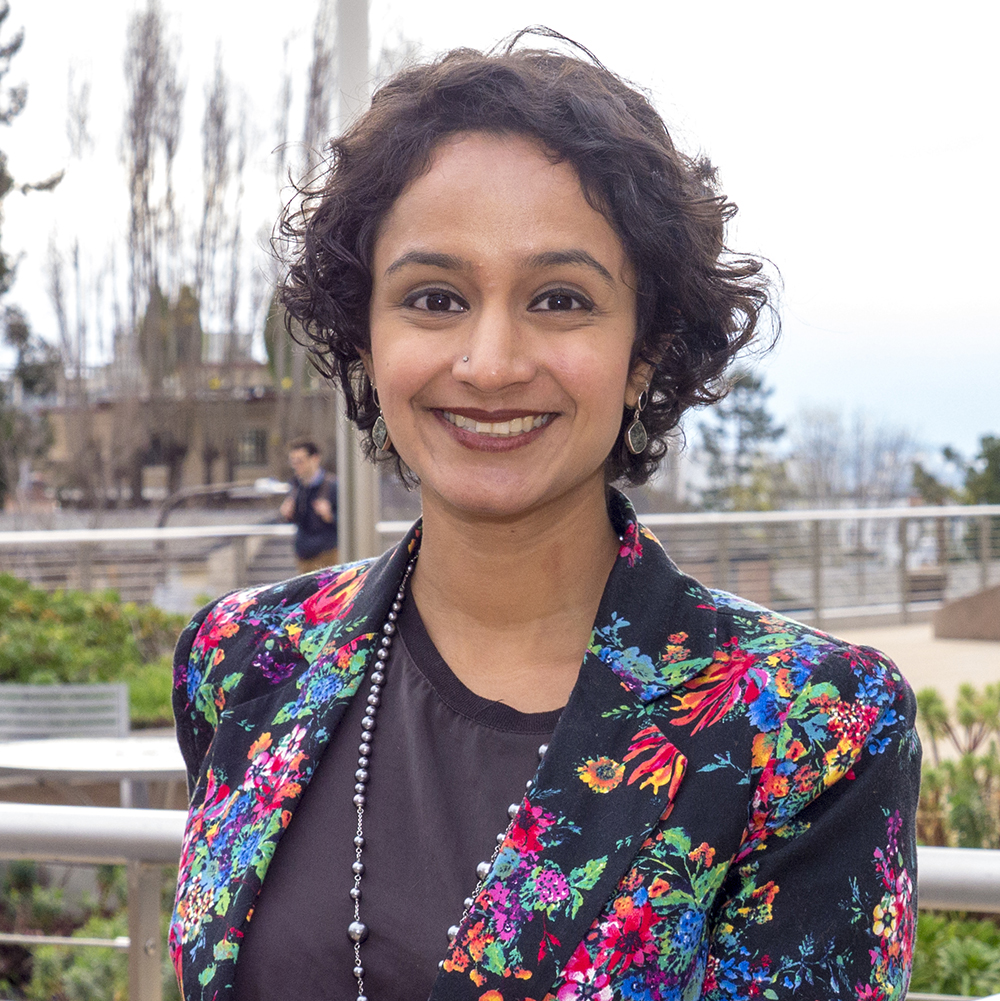 Hometown: Fremont, CA and Bangalore, India
Hometown: Fremont, CA and Bangalore, India
Education: Stanford ’14
Affiliations: Founder, BRAIV; Artistic Director, Womxn of Color Collective; Student Board Member, Family Violence Appellate Project
After college I worked at a community health clinic in Washington, DC. My initial role was as a case manager for pregnant and new mothers. But I quickly realized that a large number of the women that I worked with were domestic violence survivors. Many of these women were ready to leave their abusive relationships, seek legal protection and custody of their children, but almost never had a lawyer to guide them through the complicated maze of court processes.
So, I started helping them find resources. I liaised with court social workers, hospitals, and shelters, and helped them apply for restraining orders in family court. Eventually, the health clinic I worked for recognized my passion for supporting survivors of domestic violence and supported me in starting an advocacy program. Through that program I trained medical staff to recognize the impacts of domestic violence, developed screening tools, connected with local government agencies and advocacy groups, and designed educational materials to raise community awareness.
But even with the support of health clinics and advocacy groups like the one I worked for, the lack of legal resources, especially for immigrant and low-income survivors, made it incredibly challenging for these women to escape abusive environments and get the protection they needed. This is what inspired me to apply to law school and pursue domestic violence law as a career.
Professor Nancy Lemon, who has done groundbreaking work in domestic violence law, was one of the reasons I wanted to attend Berkeley Law. She has been an incredible mentor and has connected me to various people in the local domestic violence space. This includes Family Violence Appellate Project, founded by former Berkeley Law students, for which I am currently a Board Director.
My desire to bring innovative energy into the domestic violence field inspired me to start BRAIV (Berkeley Resistance Against Inter-Partner Violence) this year.
In my work before law school, as well as during my summer internship at Bay Area Legal Aid’s Domestic Violence Unit, I recognized that most survivors are forced to attend court hearings, an intimidating and foreign world, completely alone. After years of abuse, they are often isolated from social networks when their abusers manipulate and sever their connections to family and friends. In contrast, abusers often have private counsel and bring in a whole posse of people, partly just to intimidate the victim in court. Abuse of the litigation system can stimulate a re-traumatizing, second cycle of abuse that happens after separation, when the victim is simply trying to get a civil stay-away order, that does not involve criminal prosecution, or to get partial custody of their kids. The fantastic team of BRAIV students is currently focused on organizing court watches to enable law students to attend these trials and be present to support these survivors in court.
Another goal of BRAIV is to promote court accountability. There are numerous survivor-friendly laws in California. But the reality is that a lot of family law judges and court administrators aren’t familiar with many of these laws, or misapply them, and ultimately are not able to prevent the litigation abuse that happens in courtrooms. BRAIV is also working to raise awareness on domestic violence within the law school community. We organized a host of events for DV Awareness Month last October, and are planning several on-campus trainings this semester.
Ultimately, I want BRAIV to be an advocacy group that recognizes the importance of intersectionality. This includes focusing on supporting what survivors want instead of criminalizing and punishing abusers. Recognizing that traditional ways of seeking support for survivors are very different when you’re a woman of color, when you’re queer, when you’re poor, when you don’t speak English. Batterers can be women; victims can be men. Maybe the best solutions don’t even need to involve courts at all, or instead involve more community voices. Many victims end up being unfairly incarcerated for crimes their abusers force them to commit under duress. There’s a whole world of complexities that relate back to domestic violence, in which we, as diverse, creative law students and future lawyers, can truly make a difference.